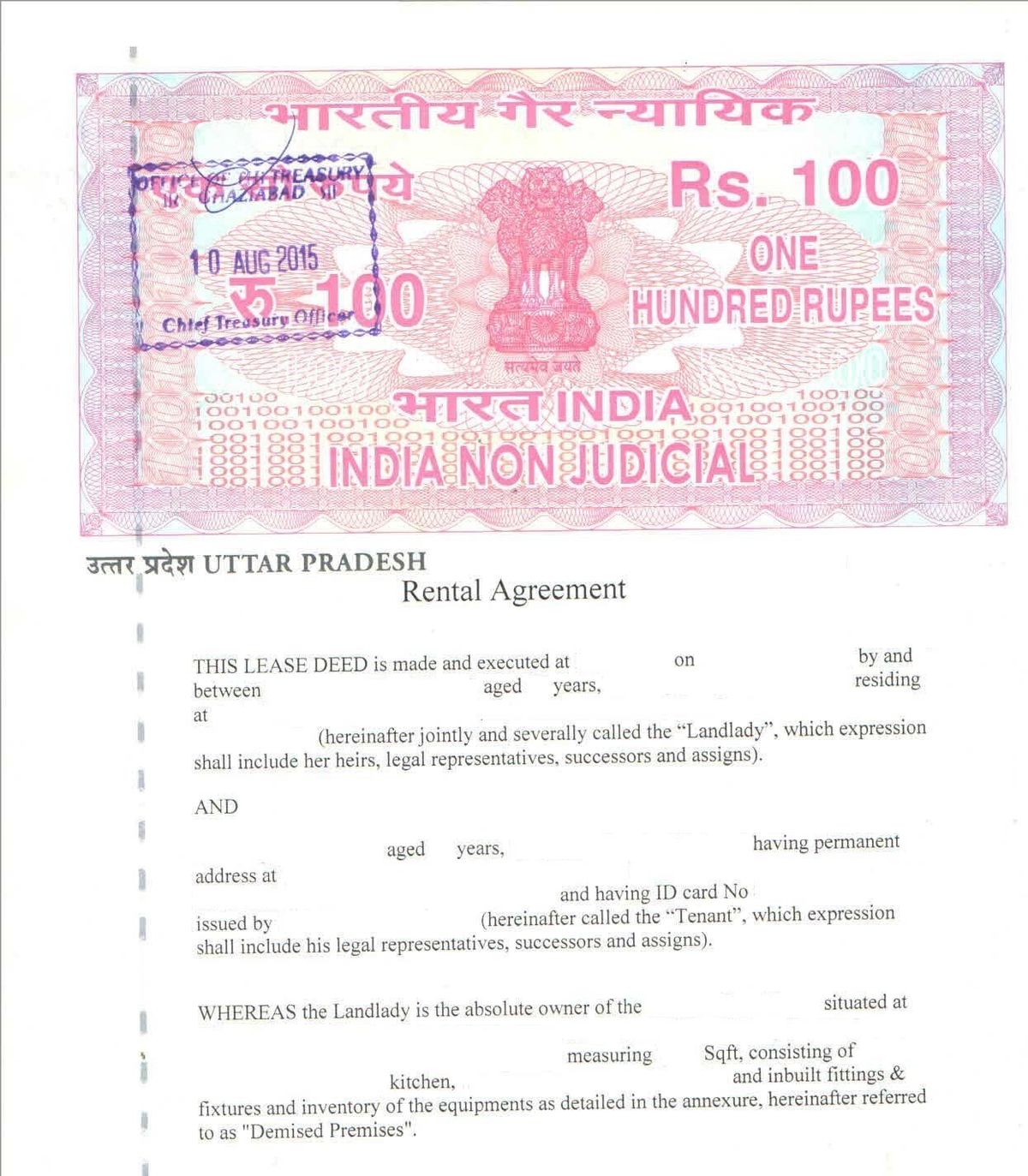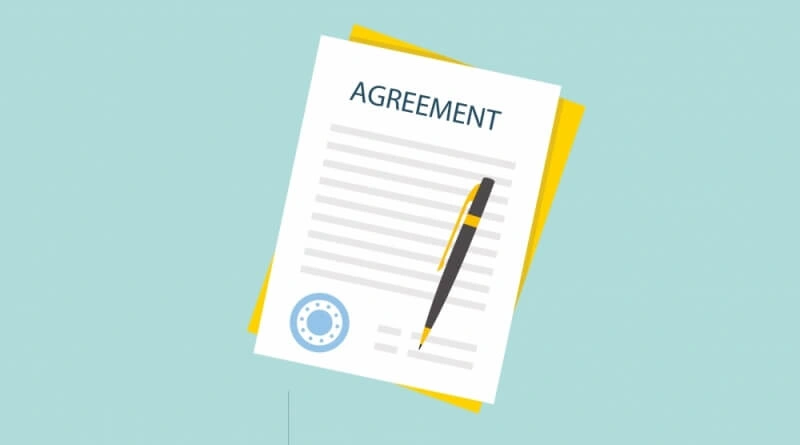Table of Content
▲- Understanding Rent Agreements
- Types of Rent Agreements
- Key Differences Between Notarized and Registered Rent Agreements
- Advantages of Notarized Rent Agreements
- Disadvantages of Notarized Rent Agreements
- Advantages of Registered Rent Agreements
- Disadvantages of Registered Rent Agreements
- Which is Better: Notarized or Registered?
- Conclusion
- Table of Costs and Process Comparison
When entering a rental arrangement, it's crucial to understand the implications of the agreement you sign. Two common types of rent agreements are notarized and registered agreements. This article will explore the differences between these two types, their advantages and disadvantages, and help you decide which is better for your situation.
Understanding Rent Agreements
A rent agreement is a legal document that outlines the terms and conditions between a landlord and a tenant. It protects the rights of both parties and specifies important details such as:
- Rent amount
- Duration of the lease
- Security deposit
- Maintenance responsibilities
- Termination conditions
Types of Rent Agreements
- Notarized Rent Agreement
- A notarized rent agreement is a document that has been verified and signed in the presence of a notary public. The notary's role is to confirm the identities of the parties involved and witness their signatures.
- Registered Rent Agreement
- A registered rent agreement is a document that has been formally recorded with the local sub-registrar's office. This involves submitting the agreement, along with required fees, to the local registration office, making it legally binding and publicly accessible.
Key Differences Between Notarized and Registered Rent Agreements
|
Feature |
Notarized Rent Agreement |
Registered Rent Agreement |
|
Legal Status |
Not legally binding in some jurisdictions |
Legally binding and enforceable in court |
|
Cost |
Generally lower fees |
Higher registration fees |
|
Process |
Simple and quick; involves a notary only |
Lengthier; requires submission to the registrar |
|
Public Access |
Not public; only parties involved can access |
Publicly accessible; can be checked by others |
|
Dispute Resolution |
May lead to complications in case of disputes |
Strong legal standing for resolving disputes |
|
Validity |
Validity may vary by state |
Generally valid across states |
Also Read: How To Save Tax On Rental Income
Advantages of Notarized Rent Agreements
- Quick and Easy Process
- Notarized agreements can be completed quickly, making them suitable for urgent situations.
- Lower Costs
- Notarization fees are typically lower than registration fees, making it a more economical option.
- Flexibility
- Notarized agreements can be used for informal arrangements where legal formalities are not a major concern.
- Confidentiality
- Since notarized agreements are not public, the details remain private between the parties involved.
Disadvantages of Notarized Rent Agreements
- Limited Legal Protection
- In some jurisdictions, notarized agreements may not hold up in court as strongly as registered agreements.
- Potential for Disputes
- Without formal registration, resolving disputes may become complicated.
- Lack of Public Record
- The absence of public access can be problematic in case of legal issues, as third parties cannot verify the agreement.
Also Read: How to Check the Credibility of a Tenant: A Comprehensive Guide
Advantages of Registered Rent Agreements
- Strong Legal Standing
- Registered agreements have strong legal validity, providing better protection in case of disputes.
- Public Record
- Being a matter of public record, registered agreements can be verified by anyone, adding a layer of security.
- Enforceability
- Registered agreements are easily enforceable in court, ensuring compliance with the terms.
- Clear Terms
- The process of registration often leads to clearer and more formal agreements, reducing misunderstandings.
Disadvantages of Registered Rent Agreements
- Higher Costs
- The registration process involves higher fees, making it a more expensive option.
- Lengthy Process
- The registration process can take time, which may not be suitable for urgent arrangements.
- Complexity
- The documentation and legal requirements can be more complex than notarization.
Which is Better: Notarized or Registered?
Choosing between a notarized and registered rent agreement depends on various factors:
- Duration of Lease:
- If you’re entering into a long-term lease, a registered agreement is advisable for its strong legal standing.
- Cost Considerations:
- If budget constraints are a primary concern, notarized agreements may be more appealing.
- Urgency:
- For quick arrangements, notarization can expedite the process.
- Legal Requirements:
- Check local laws, as some states may require registered agreements for specific lease lengths or types.
- Level of Trust:
- If the parties involved have a high level of trust, a notarized agreement may suffice. However, for new or high-value arrangements, registration offers more protection.
Sample of Registered Rent Agreement

Conclusion
In summary, both notarized and registered rent agreements have their merits and drawbacks. Understanding your specific needs, budget, and the legal implications of each type will help you make an informed decision. For long-term leases or those requiring strong legal protection, a registered rent agreement is generally the better option. Conversely, if you need a quick and cost-effective solution for a short-term lease, a notarized agreement may suffice.
Table of Costs and Process Comparison
|
Agreement Type |
Estimated Cost |
Time Required |
Process Overview |
|
Notarized Agreement |
₹500 - ₹2,000 |
A few hours |
Visit a notary, sign the document, pay the fee |
|
Registered Agreement |
₹2,000 - ₹5,000+ |
1-3 days or more |
Prepare documents, visit the registrar, pay fees, wait for confirmation |
By understanding these elements, you can choose the right type of rent agreement for your needs. Always consider consulting with a legal professional for personalized advice.
Also Read: What is Sales Agreement? Definition and Details






_1771410929.webp)


_1771582392.webp)
_1771577585.webp)
Ans 1. A notarized rent agreement is a document signed by the landlord and tenant in the presence of a notary public. The notary verifies the identities and witnesses the signatures but doesn't provide any legal registration.
Ans 2. A registered rent agreement is a legally binding document that is submitted to and recorded by the local sub-registrar's office, making it enforceable in court.
Ans 3. A registered rent agreement is more legally binding than a notarized one and is easily enforceable in court in case of disputes.
Ans 4. The cost of registering a rent agreement varies depending on the state and city but typically ranges from ₹2,000 to ₹5,000 or more.
Ans 5. A notarized rent agreement can be enforced in court, but it may not hold the same legal weight as a registered agreement, which has more formal recognition.